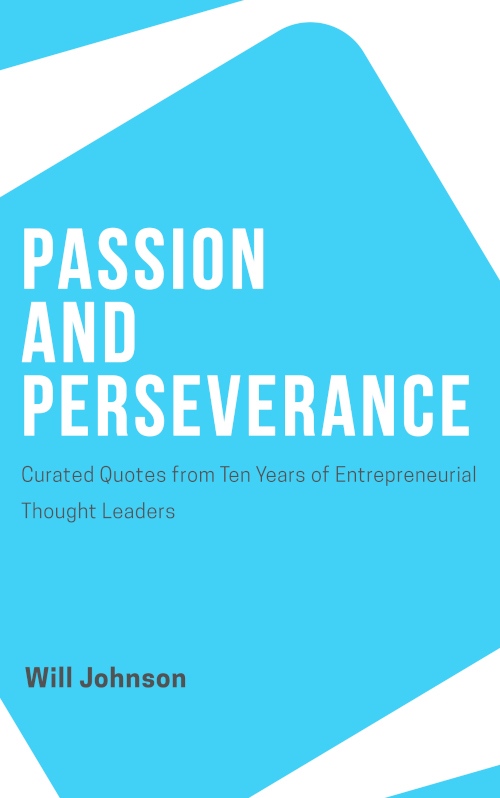Title: Entrepreneurship Gives Life Meaning
Date: 2011-10-05
Speaker: David Friedberg (The Climate Corporation)
Link: Entrepreneurial Thought Leaders
It is important to be organized.
70% of businesses are affected by the weather every year.
When you are presented with opportunities where you feel you can make a really big impact it is worth doing it in light of the comfort of not doing it.
You can never hold a grudge in Silicon Valley.
Doing a startup is a way of organizing an activity or group of people around a problem they are trying to solve.
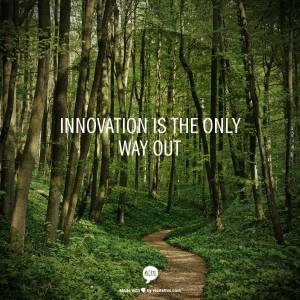
Just being an entrepreneur does not make one a rock star.
The opportunity cost of doing a startup is very high.
Do not do a startup for the financial reward.
There are challenges with doing things in a big company and they all need to be taken into consideration.
In forty years none of your failures are going to matter.
What is going to matter is the big things you achieve in life.
It is the grind that is going to end up making the difference.
Innovation is the only sustainable competitive advantage any company can have.
Innovation for scale requires perpetual change.
When you take risks odds are you’re going to fail.
Solve the problem that you’re setting out to solve and be smart about how you’re solving it.
You should be innovating to come up with a new business model mode.
A lot of people are doing a lot of similar things in Silicon Valley these days.
Innovation is the only way out.
If you’re thinking about doing something entrepreneurial think about solving a really big problem. It is going to be great not just for you. It is going to be great for everyone.
There are plenty of places for you to innovate.
Agriculture is a huge opportunity.
It should be natural human behavior to solve big problems.
Title: No Exit Strategy for Your Life’s Work
Date: 2011-10-12
Speaker: Phil Libin (Evernote)
Link: Entrepreneurial Thought Leaders
Everything ends.
Actively cultivate friends, relationships, and work environments where everybody is smarter than you.
If you’re building something you love why would you want to exit?
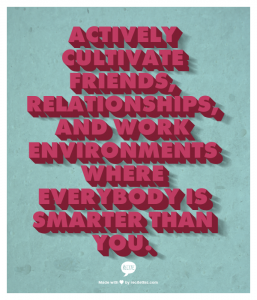
If you want to sell your company then something is wrong.
If you want to be an entrepreneur ask yourself why.
The number one bad reason for wanting to be an entrepreneur is because you want to make money.
When you’re the CEO of a startup company everybody is your boss.
Now is the best time in the history of the universe to start a company.
We’re living in a geek meritocracy.
Sophisticated investors have totally decoupled exit from liquidity.
The secondary markets provide all of the liquidity you would need.
Most people conflate difficult decisions with unpleasant decisions.
The only way you can win, to increase your chances of succeeding, is to make a great product.
Title: Great Entrepreneurs Go Out and Do
Date: 2011-10-19
Speaker: Brad Feld (Foundry Group)
Link: Entrepreneurial Thought Leaders
brad@feld.com
It takes about a decade to (shutdown) a venture capital fund.
It is very difficult to grow a venture capital firm.
The notion of trying is not really a core part of what the great entrepreneurs have done.
The great entrepreneurs make a decision to do something and then go after it with the full force of everything they have.
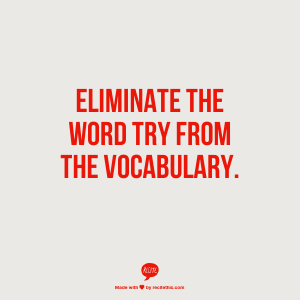
The notion of “I’m going to try to” almost out of the gate undermines your ability to go do.
Eliminate the word try from the vocabulary.
Do things that you love.
Entrepreneurial communities need leaders who are entrepreneurs.
Do a Startup Weekend.
(For entrepreneurial communities) you have to constantly be getting fresh blood into the system.
Make sure you’re spending your time on things where you’re learning all of the time.
The essence of what you’re trying to do as an entrepreneur, or if you’re investing in entrepreneurs, is creating amazing new things that impact all of us.
The pressure point of the opportunity moves around.
Often times your premise, especially early on in the life of the business, is wrong.
Look at your business as your innovation not just your product.
It is not a linear path.
Create the life you want to create. You’ll be better at creating the products you want to create.
Title: Products With a Purpose
Date: 2011-10-26
Speaker: Scott Summit (Bespoke)
Link: Entrepreneurial Thought Leaders
Form follows mechanical function.
The human body is inherently customized.
We always want faster and cheaper.
Not everybody wants to be a designer.
Title: Believe In Something Bigger Than Yourself
Date: 2011-11-02
Speaker: Marten Mickos (Eucalyptus)
Link: Entrepreneurial Thought Leaders
Entrepreneurialism is essentially a belief system.
You must believe something that is bigger than yourself.
You must have an unwavering belief that there is something you can do that nobody else can do and that if you do it the world will be a better place.
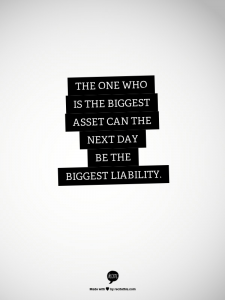
You must believe in yourself.
You must always have somebody that believes in you.
Books today are available to anybody and everybody.
You need to decide how you receive advice.
If you are a disrupter you must play a bold and fun game with the big guys.
The one who is the biggest asset can the next day be the biggest liability.
Company culture is what drives and defines a business.
A strategy without a culture is meaningless.
When you show openness to (your employees) they respond favorably.
People have a tendency to believe in authority.
When you work from home the only way to communicate is through productivity.
Not all people like working from home.
Decisions must be documented and distributed to everyone.
Human beings look for structure.
Open source is by far the best way to develop software. You will develop better software and faster.
If nobody is against you then you’re not really popular.
Title: Method to Success
Date: 2011-11-09
Speaker: Adam Lowry (Method)
Link: Entrepreneurial Thought Leaders
At most retailers the merchandisers (merchants) are very different from the marketers.
The secret to (their) success is more about how they do it rather than what they do.
The most important part (of the innovation process) is adoption.
Telling stories is really important because it is actually what allows you to connect the emotion of your brand with people.
Stories must create participation.
One of the most important things in starting a business is realizing the difference between customers and consumers.
The people that matter are (the consumers).
Title: Understanding Venture Capital
Date: 2011-11-16
Speaker: Dana Mead (KPCB)
Link: Entrepreneurial Thought Leaders
Venture capitalists love logos.
There are only 7,000 to 8,000 venture capitalists.
If you want to be a venture capitalist one of the things you want to do is network.
They invest in a very small percent.
You have to be very efficient about your time.
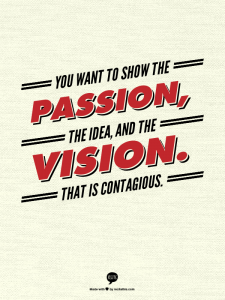
The people are obviously the most important part of any business.
We have technical and clinical risk in life sciences.
Try to put boundaries around risk.
Focus on big ideas and moving things forward. If that happens then the exit will take care of itself.
Don’t be afraid to talk about the risks.
To be a great entrepreneur you can’t be rational.
Passion is what is going to make the company happen.
You want to show the passion, the idea, and the vision. That is contagious.
People rarely say no when you ask them for help.
Don’t focus on the exit.
You have to be persistent.
Get the best people you can possibly find.
Proximity of interface is extremely powerful.
Create your own innovation ecosystem.
Team with people with other backgrounds.
There are plenty of smart people that are positive and optimistic. Put those people around you.
The venture capitalist’s job is to mitigate risk.
Funds are ten years long.
A public servant is often limited on how he or she can interface with private industry.
The entrepreneur’s role is to pass on and transmit the excitement about what the company can become.
The healthcare consumer is a fickle consumer.
Title: A Startup is a Learning Experience
Date: 2011-11-30
Speaker: Jessica Mah (inDinero)
Link: Entrepreneurial Thought Leaders
Up front set up a signup page that takes a credit card number and see if people will enter it.
There is nothing more valuable than to finish college.
Get out of the building (to find out what customers want).

Book: The Four Steps to the Epiphany
Book: The Lean Startup
What customers want isn’t necessarily what you or your engineering team wants to build.
Fix your mistakes quickly.
Getting a lot of press is a lot of fun but half of it didn’t convert into signups.
Getting press needs to lead to business results. If it is just about your ego then it is a waste of time.
You are responsible for your staff. You are responsible for making payroll. You are responsible for your customers. You are responsible for your investors. On top of all that you have your own career to worry about.
Everyone at a small startup is close friends.
Keep your office in an apartment for as long as possible.
You’re going to go through iterations and it is going to be long and slow.
You’re not going to have an overnight realization of what customers want.
You don’t have to publicly launch to get user feedback.
You have to decide what is right for you.
It is super important to have a cofounder.
Money goes by faster than you think.
It is always safer to raise more (money) than less.
You don’t get to launch twice.
Measure more than just intelligence.
You have to make your startup fun for you to work in.
No business plan survives first contact with customers.
By raising money too early you’re likely to waste it on the wrong things.
It is better to fire as soon as you realize it isn’t a perfect fit.
It is easy to get the people that love your product to talk about it. It is a lot harder to get the people who don’t like your product to talk to you about it.
Watch in person (people) use your product.
Title: Talking About a Revolution
Date: 2012-01-18
Speaker: Deborah Hopkins (Citi)
Link: Entrepreneurial Thought Leaders
Your phone is becoming your life. It guides a lot of the things you do.
There is a revolution happening in corporate America.

Email is very vertical.
Email is going to go away and it won’t be that long.
Knowledge is power.
We need to find different ways to reward people.
Driving for the money is not going to yield you the best answer.
If you do the right things the money will come.
Banking is where some of the most intimate things in your life happen.
You have to have a front line.
Trust your gut.
If it feels right it usually is.
Strike when you find an opening.
Human nature hates change.
Carry the banner for creative chaos.
Share your intel.
Go in armed. Know your stuff.
Everybody goes through basic training.
Fight for the customer.
You gotta celebrate the victories.
Title: Tools for Business Model Generation
Date: 2012-01-25
Speaker: Alexander Osterwalder, Steve Blank (Author)
Link: Entrepreneurial Thought Leaders
The first thing you want to do is burn your business plan because it is a waste of time.

Book: Blah, Blah, Blah: What To Do When Words Don’t Work
Words are not enough.
Great products are becoming a commodity.
It is the combination between great products and a great business model that is going to keep you ahead.
The business model is never finished.
Prototyping is actually the conversation you have with your ideas.
Even the best business model on paper is only a set of hypotheses.
Title: Building an Entrepreneurial Career
Date: 2012-02-01
Speaker: Ted Zoller (Kauffman Foundation)
Link: Entrepreneurial Thought Leaders
Great entrepreneurship usually starts with innovation.
Necessity is the mother of innovation.
In many cases innovation is not enough. You need insight.
Solutions need to find their impact in the market. Only a few will make it through.
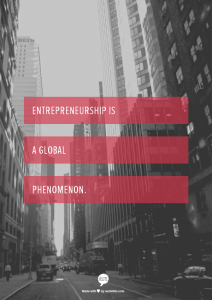
You need to dial in the notion of need.
The intersection of opportunity and need is where the entrepreneur should live.
Launch and learn is better than learn and launch.
You have to be able to execute.
Execution is critical.
The best business models are usually the simplest business models.
Avoid complexity.
Entrepreneurs don’t learn strategically. They are very opportunistic.
Entrepreneurs don’t think top down. They think bottom up.
It is very difficult to build a business on an incremental improvement. You really need a leapfrog strategy.
Entrepreneurs put themselves in the position to be lucky.
Book: The Discourses
Recurring revenues is a durable business.
The market brings a lot of clarity.
People need to see the world as an international or global market.
As you’re challenged further you become greater at acting entrepreneurially.
We were talking about Moore’s Law fifteen years ago. Now we’re living it.
Entrepreneurship is a global phenomenon.
Title: Embrace Uncertainty
Date: 2012-02-08
Speaker: Warren Packard (Thuuz)
Link: Entrepreneurial Thought Leaders
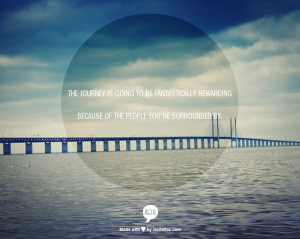
Life is statistics.
Life is probabilistic.
Determinism has very little role in entrepreneurship.
Determinism has a big role in engineering.
There are no right answers because everything is uncertain.
As an entrepreneur you’re going to be faced with uncertainty.
It is okay to be uncertain because you should be uncertain.
It is all about team.
The journey is going to be fantastically rewarding because of the people you’re surrounded by.
Think about your team first.
There are some businesses that require perfection and there are some businesses that require imperfection.
It is about chance versus planning.
The culture of your company is absolutely pivotal.
As an entrepreneur intuition is absolutely paramount.
As an entrepreneur you need to focus.
If you don’t focus you’re not going to get anywhere.
There is an element of patience that is required in entrepreneurship.
As you build your business forward don’t lose sight of any of the stakeholders.
You’ve got to prioritize.
Title: Find Your Vector of Impact
Date: 2012-02-15
Speaker: Sukhinder Singh Cassidy (JOYUS)
Link: Entrepreneurial Thought Leaders
If there is one thing an entrepreneur is meant to do it is rub two sticks together and make fire.
It is all about getting started.
An object at rest stays in rest. An object in motion continues in motion.
Your first goal as an entrepreneur is to get started.
The act of commitment is not about thinking about it in your head. It is about leaning forward and taking that first step.
The simple act of involving someone else with what is inside your head is the point at which you start being an entrepreneur.
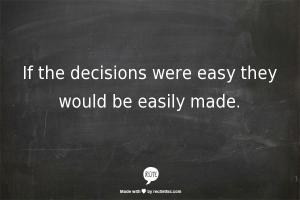
Start.
The most precious thing (college students) have right now is the opportunity to go do it for the first time.
Part of the journey of great entrepreneurs is how you manage and lead in between.
The key if you want to be a founder is, “are you a product prophet?”
You can think big or you can think small. It takes the same amount of energy.
If you’re going to lean in lean in all the way.
Data is imperfect. For a founder it is nonexistent.
There is no perfect data. There is no perfect gut.
Gut is informed intuition.
Your company most of all reflects you.
Build a team who can challenge who you are.
It is all about understanding who you are and what can complement that.
Be the best version of yourself.
Speed is not to be confused with market timing.
Market conditions change. Your ability as an entrepreneur to react to those changes might be what makes the difference on running out of money.
Book: Outliers by Malcolm Gladwell
Know your trademark strength.
There are many paths to being a founder. The shortest path is to be a master of your trade.
If you can’t hire the person you want hire the number two of the person you want.
Really smart and talented people often have big egos. That is okay. You want to watch on how much the ego drives the conversation.
Startups are a contact sport. They are a high contact sport in a small arena.
If the decisions were easy they would be easily made.
Starting a company (with somebody else) is like a marriage.
You want to go in (to deciding who to partner with or hire) with as much data as possible.
The single biggest characteristic of an entrepreneur is one foot in front of the other.
When all else fails you’ve got to hang on and persist.
The most important thing you’re going to take with you, besides your trademark strength, is your reputation.
Title: Live Life in Permanent Beta
Date: 2012-02-22
Speaker: Reid Hoffman (LinkedIn)
Link: Entrepreneurial Thought Leaders
Everybody needs to be the entrepreneur of their own lives.
People and technology are interrelated.
The entrepreneurial mindset is now critical for everybody.
Taking risk is essential.
There are different kinds of risks. You need to figure out what are intelligent risks.
There would be no such thing as a successful serial entrepreneur unless (they) knew how to manage risk the right way.
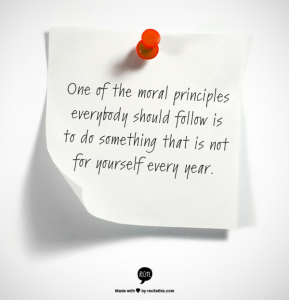
Anytime you do an entrepreneurial effort it is not a sure thing.
On the Internet if you’re not embarrassed by your first product release you released too late.
One of the very big risks is the risk you don’t know you’re taking.
Globalization is scary from a competitive standpoint but it also creates a lot of opportunities.
If it is not 10x different then it is not different at all.
rhoffman@greylock.com
There is a limited number of companies that get to breakout velocity.
If it is not a really big idea it is usually not worth doing because it is the same amount of blood, sweat, and tears.
You always have to be investing in the next curve.
Great products are really hard.
One of the moral principles everybody should follow is to do something that is not for yourself every year.
Ultimately what makes you better is the people you talk to and interact with.
With company culture you need to think about what are the things we’re all going to hold ourselves accountable for.
Title: Energies that Power a Career
Date: 2012-02-29
Speaker: Kristina Johnson, Tina Seelig (Enduring Energy)
Link: Entrepreneurial Thought Leaders
The most important thing for starting out…is to get to know people.
People want to know you care before they care what you know.
Stay close to people you know (in college) because you never know what they’ll do.

Be flexible and adaptable.
Be very cross-disciplinary,
If you think you’re onto something good stay with it.
Nobody is ever going to be more passionate about your idea than you.
There are many valleys of deaths.
Put in place the steps so you can step up and step up.
Trust your heart and trust your gut.
Book: The Four Agreements
Engineering is really important.
Big problems require cross-disciplinary solutions.
Look around an organization and be open-minded and flexible enough to take advantage of the experts.
Sometimes you carry the water. Sometimes you need to be the star. It is important to do both those roles very well.
There is a tremendous amount of capital to be brought in from the sidelines.
Change is tough but it is very rewarding.
Expand your network.
Show by example.
Be disciplined.
Title: Two Generations of Entrepreneurship
Date: 2012-03-07
Speaker: Sandra Kurtzig, Andy Kurtzig (Kenandy, JustAnswer)
Link: Entrepreneurial Thought Leaders
The flinch method of pricing. (Sandra Kurtzig)
It is important as an early entrepreneur to think about how you name your product. (Sandra Kurtzig)
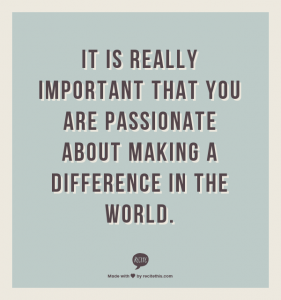
Believe in yourself. (Sandra Kurtzig)
Be willing to work long, hard hours. (Sandra Kurtzig)
Be passionate about what you’re doing. (Sandra Kurtzig)
Try to get ahead of the market if you possibly can. (Sandra Kurtzig)
Manufacturing companies today are very horizontally structured. They want to be close to their customers. (Sandra Kurtzig)
The companies that are going to be succeeding in today’s and tomorrow’s market are the ones that can respond very quickly to the customer needs and can respond very quickly to the needs of the supplier. (Sandra Kurtzig)
You finish something you start. (Sandra Kurtzig)
It is not just when you are deciding when a business idea is something good to begin with that you should see if customers actually want it. You should actually do that every day forever for the life of your company. (Andy Kurtzig)
It is really important that you are passionate about making a difference in the world. (Andy Kurtzig)
It is really important to have values so you know what kind of people you want to have at your company. (Andy Kurtzig)
Title: The Wave of Social Entrepreneurship
Date: 2012-04-11
Speaker: Jeff Church (Nika Water)
Link: Entrepreneurial Thought Leaders
You better out-prepare everything.
The secret to a successful forty-hour workweek is to work eighty.
The value of networking is so important particularly at a younger age.

Push yourself out of your comfort zone.
You only have your good name in life to leave as your legacy.
You want to share the upside with people but be really careful with the dilution.
Really understand your partners.
When you’re buying a business or building a business integrity is so important.
Break bread with your prospective partner (and their spouse).
A lot of time the NGOs aren’t the best business people in the world.
The more education we get the more we learn all of the reasons businesses fail. Use those to make sure your business doesn’t fail.
Young people today want to be part of something bigger than themselves and they also want to make a buck. You can do both. You don’t have to wait thirty years to do it.
The Internet makes all of us be academic researchers from our laptops.
There is no reason for any of us to not be experts before we put a business plan together.
As the baby boomers are retiring a lot of them are giving back a significant portion of their net worth.
Half of the hospital beds in the developing world are occupied by people with water-borne diseases.
Destiny is not a matter of chance. It is a matter of choice. It is not a thing to be waited for. It is a thing to be achieved.
Begin with the end in mind.
Book: The Seven Habits
Think about where you want to get to and work backwards to where you are now.
Be transparent with your donations.
Put your best foot forward.
Find like-minded people.
You want to find people that want to run through walls for you.
You want to make people feel like it is everyone’s business.
The product has to have a good value proposition.
Outsource as much as you can. Keep your costs variable.
If you’re doing it all yourself it is really not scalable.
Learn on someone else’s nickel.
Find a partner or mentor that balances you.
The rule of twos: everything takes twice as long and costs twice as much money.
The last thing you want to do is run out of money when success is right around the corner.
V.C.s are going to be very apprehensive about political risks.
Most people quit too early (as a generalization).
Title: Producing a Career from the Ground Up
Date: 2012-04-18
Speaker: Gale Anne Hurd (Valhalla Entertainment)
Link: Entrepreneurial Thought Leaders
If you’re going to go in for a job interview make sure you’ve thought of everything.
When opportunity knocks on the door you close your eyes, you take a deep breath, and you say yes.
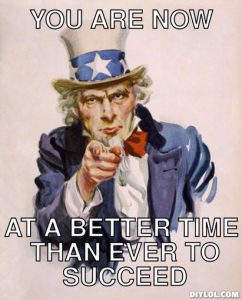
You will either sink or swim.
Be careful what you wish for.
You learn more from your mistakes than from your successes.
It is important to remember it is all a learning experience.
Choose to become indispensable.
Do what you love, not what is easy.
Challenge expectations including your own.
Stay hungry.
When there are no role models become one.
It is not just what you know that is important, it is who you know.
Be prepared when opportunity knocks.
Ask for help.
Learn to spot talent and support them through thick and thin.
Tell the truth even if it makes your path harder.
Never give up.
Always give back.
Don’t make a play until you have the right skills, mentors, and partners.
Not all partnerships work out.
Take a vacation.
Reinvent yourself if need be.
Don’t give into doubt.
The (film) industry now has more opportunity that it has ever had.
You are now at a better time than ever to succeed.
If you’re not given more responsibility fairly quickly it is probably time to move on.
Necessity is the mother of invention.
You can’t have products that are given away for free.
You can’t continue to do what you do if people aren’t willing to pay for it.
Title: Small Acts and Big Impacts
Date: 2012-05-02
Speaker: Rebeca Hwang, Elizabeth Samara-Rubio (YouNoodle, StorWatts)
Link: Entrepreneurial Thought Leaders
Small acts can have a big impact no matter how many resources we have. (Elizabeth Samara-Rubio)
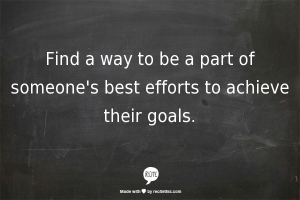
Any technology at the end of the day has to impact people. (Elizabeth Samara-Rubio)
You can’t just take best intentions and great technology into these (emerging) markets without having done a bit of homework in the field. (Elizabeth Samara-Rubio)
A couple of ideas reproduce like rabbits. (Rebeca Hwang)
(To make good decisions) you first have to know what you want. (Elizabeth Samara-Rubio)
As long as you’re clear with what you want give yourself some options and go with it. (Elizabeth Samara-Rubio)
Always try to make decisions that are going to improve your future but not at the expense of the present. (Rebeca Hwang)
Know who you want to impact. The business will take care of itself. (Elizabeth Samara-Rubio)
Part of success is failure. (Elizabeth Samara-Rubio)
Technology has the potential to truly disrupt in a very short time period. (Rebeca Hwang)
Find a way to be a part of someone’s best efforts to achieve their goals. (Elizabeth Samara-Rubio)
Have a road map. (Elizabeth Samara-Rubio)
Title: A Story of Change and Opportunity
Date: 2012-05-09
Speaker: Brian Murray, Tina Seelig (HarperCollins)
Link: Entrepreneurial Thought Leaders
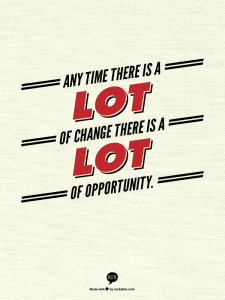
Change can lead to opportunities and anxiety.
Good books will sell for decades.
The digital world that is developing around us creates a lot of new opportunities.
Small teams is where the best creative work takes place.
Any time there is a lot of change there is a lot of opportunity.
Sharing the failures is in some way more important than sharing the successes because you don’t want to repeat things that don’t work.
Any company is one big, complex problem.
The more senior you get in an organization the less it is actually you doing the work so it becomes about asking the right questions.
Title: A Playlist for Entrepreneurs
Date: 2012-05-16
Speaker: Daniel Elk, Chi-Hua Chien (Spotify)
Link: Entrepreneurial Thought Leaders
An entrepreneur is someone who has an itch for a problem and is annoyed enough by the problem that they go out and seek a solution for it. (Daniel Elk)
The right person will figure out how to sell umbrellas in the Sahara. (Daniel Elk)
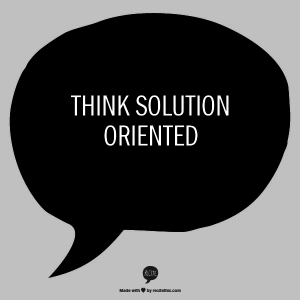
It is all about execution. (Daniel Elk)
The vast majority of people in the world do not spend any money on music. (Daniel Elk)
Complicated industries tend to change slowly. (Chi-Hua Chien)
Keep going until you succeed if you’re convinced about something. (Daniel Elk)
Have a lot of patience. (Daniel Elk)
Choose an area where you think you can truly matter. (Daniel Elk)
Think solution oriented. (Daniel Elk)
Look at an interface and ask the question, “Why is it there?” (Daniel Elk)
Proximity…matters a lot. (Daniel Elk)
The physical presence cannot be replaced yet. (Daniel Elk)
What distinguishes A-players from B-players is you want to surround yourself with people that are smarter than you. (Daniel Elk)
Don’t assume that because somebody is experienced that they have the right experience for that task. (Daniel Elk)
As an entrepreneur you’ve got to focus on the few things that matter. (Daniel Elk)
In a small company every person needs to carry their weight and more. (Daniel Elk)
Innovation is taking two things that are already known and putting them together to create something new. (Daniel Elk)
Solving one thing and solving it really, really well is super important. (Daniel Elk)
If you’re trying to be everything to everyone you will fail. (Daniel Elk)
Sometimes the easiest answer is also the right answer. (Daniel Elk)
Every platform that takes off always gets gamed. (Daniel Elk)
Title: Secrets at Apple’s Core
Date: 2012-05-23
Speaker: Adam Lashinsky (Author)
Link: Entrepreneurial Thought Leaders
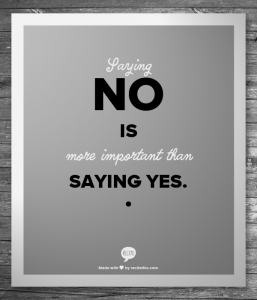
Getting rid of products–simplifying–is perhaps the core of what Apple is about.
Secrecy is incredibly important at Apple.
If you know something that is better is coming soon you’re going to be very unlikely to buy what is on the store shelves and, more importantly from a business perspective, the warehouse shelves.
Apple keeps secrets from itself.
Design is preeminent.
Saying no is more important than saying yes.
Apple says no until it is ready to say yes.
DRI stands for Directly Responsible Individual.
When you have a good (marketing) line you repeat it over and over again. Somebody might be hearing it for the first time.
Edit down things that are extraneous.
Celebrities have a lot to say about a company’s image.
Apple is a culture of work not a culture of play.
Title: Finding Your Way as an Entrepreneur
Date: 2012-05-30
Speaker: Drew Houston (Dropbox)
Link: Entrepreneurial Thought Leaders
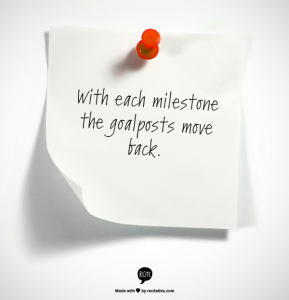
Even if you know where you’re going now things are going to get gnarly down the road.
You’re an average of your five closest friends so it can be beneficial if your closest friends are also interested in startups.
The most important decision you can make is who your co-founder is.
You don’t become a great salesperson from reading a book.
Reading a book gives you the basics of a given discipline.
With each milestone the goalposts move back.
It all happens one day at a time.
People underestimate the importance of distribution.
Book: Guerrilla Marketing
Book: Crossing the Chasm
Any technology or service has early adopters.
Understand your early customers.
If no one is searching for what you’re making then you have a problem.
It all starts with a great product.
You always overestimate the competition.
Hire the very best people.
Focus is really powerful.
Figure out problems that people don’t even know they have and solve them.
Keep your users happy.
People have different proclivities for paying for things or not.
10% more friction might cut your audience in half.
A co-founder first and foremost should be somebody where you respect their judgement.
A good engineer can generally recognize another good engineer.
